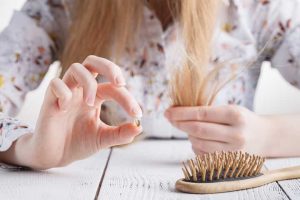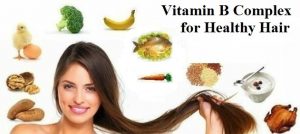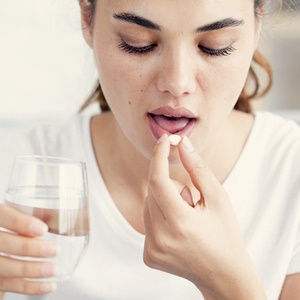How To Have Healthy Hair

One of the best ways to ensure you’re wearing your best hair is via a healthy diet. But what is a healthy diet these days? Sometimes it honestly hard to know. Is it low carb or low fat? Do you go for the paleo or maybe go full carnivore? Maybe a juice cleanse will get the job done?
If you’re looking for healthy looking hair then, no matter what diet you choose, there are 5 essential vitamins and minerals that you have to make sure you are consuming on a regular basis.
Vitamin A
Hair is the fastest growing tissue in the human body. Your hair needs vitamin A in order to remain moisturized and continue growing. Vitamin A also helps skin glands make an oily substance called sebum. Sebum moisturizes the scalp and helps keep the hair healthy.
Good sources include sweet potatoes, carrots, spinach, kale. All are high in beta-carotene, which can be turned into vitamin A. It can also be found in animal products such as milk, eggs and yogurt. Cod liver oil is another particularly good source.
Diets deficient in vitamin A may lead to several problems, including hair loss, however, a word of warning. While it’s important to get enough vitamin A, too much may be dangerous and can actually have negative effects on both the hair and body. Hair follicles will go into overdrive if you consume too much of it resulting in the hair reaching the end of the growth phase far too quickly. If your body is unable to make new hair quickly to replace it, you can end up experiencing hair thinning and in severe cases, baldness.
B-Vitamins

Found in meat, whole grains and green leafy vegetables, B-vitamins help carry oxygen and nutrients to your scalp, which aids in hair growth.
When the body becomes deficient in B vitamins it significantly contributes to the undernourishment of hair follicle cells. Biotin, in particular, is needed to metabolize the amino acids that create keratin and though it is rare, patients that are deficient in biotin often have alopecia.
Vitamin C

In addition, free radical damage can block the growth and cause your hair to age. Vitamin C is a powerful antioxidant. It helps against the oxidative stress caused by free radicals by protecting the hair follicle cells and nearby blood vessel cells that supply nutrients and oxygen to the scalp.
Found in strawberries, peppers, guavas and citrus, vitamin C also helps your body absorb iron, a mineral necessary for hair growth.
Iron
Heavy levels of iron are necessary for aiding red blood cells as they carry oxygen to your cells. This makes it an overall important mineral in ensuring the body functions healthily, including hair growth.
Iron deficiency is a major cause of hair loss and is especially common in women. Iron deficiency hair loss can often look like traditional male and female-pattern hair loss. Eating foods high in iron include clams, oysters, eggs, red meat, spinach and lentils can avoid this issue.
Zinc

Oral zinc compounds have been used for decades for treating disorders such as telogen effluvium and alopecia areata. Zinc is an essential co-factor for multiple enzymes and is also a potent inhibitor of hair follicle regression, because of the ability to accelerate hair follicle recovery. Studies suggest that some alopecia areata patients suffer from zinc deficiency, and oral zinc sulphate therapy serves as an effective treatment.
Good sources include oysters, beef and pumpkin seeds.
If you are suffering from hair loss and don’t know why or what to do about it, please make an appointment with the Toronto Hair Transplant Surgeons. We have specialists here to advise you on how to manage your hair loss and to help you find out what the exact reason for it is. If you are concerned about hair loss, remember not to panic. Hair transplantations are now an affordable and natural looking solution to hair loss. In the meantime, make sure your diet contains the essential vitamins and minerals it needs to function properly and keep your hair looking radiant and strong.



